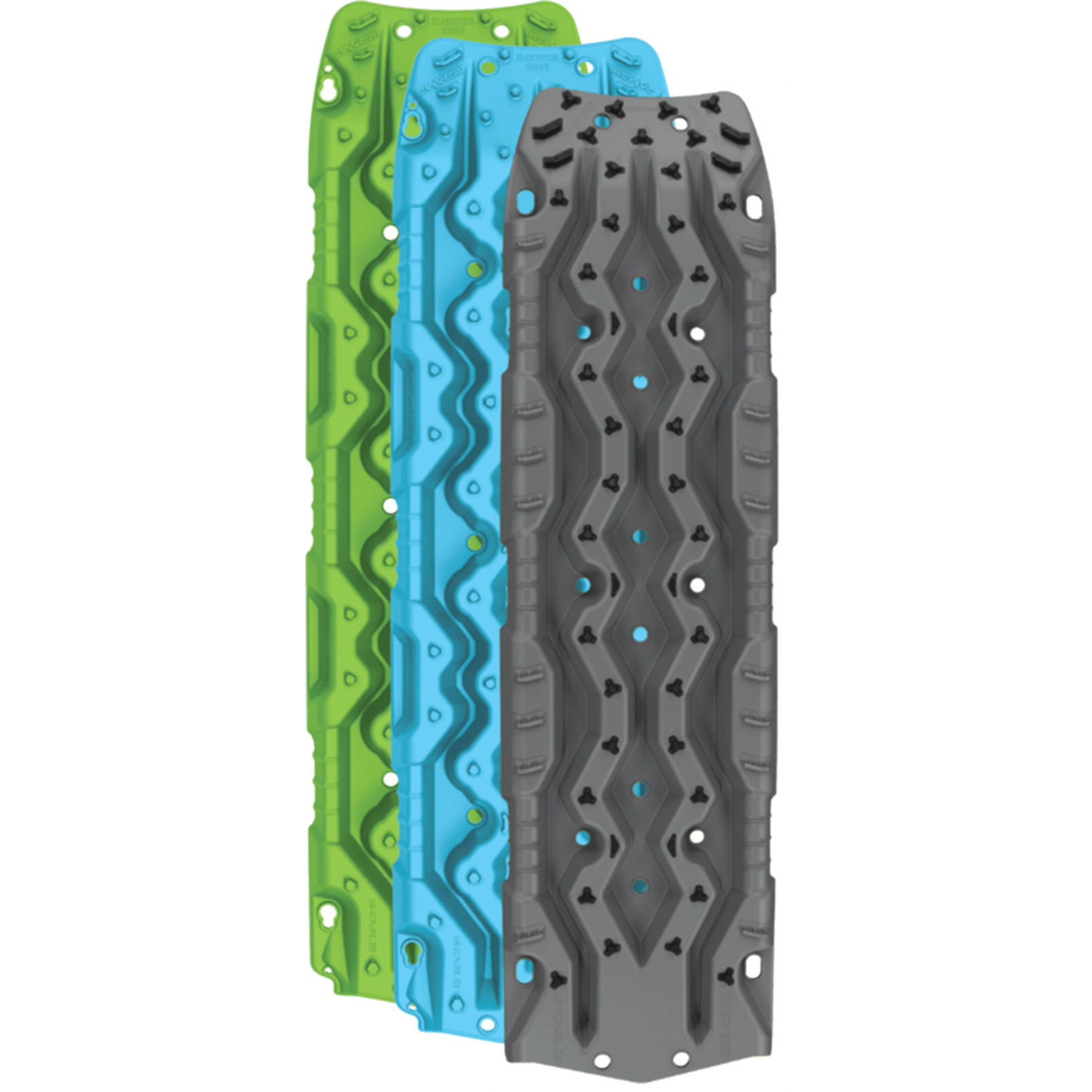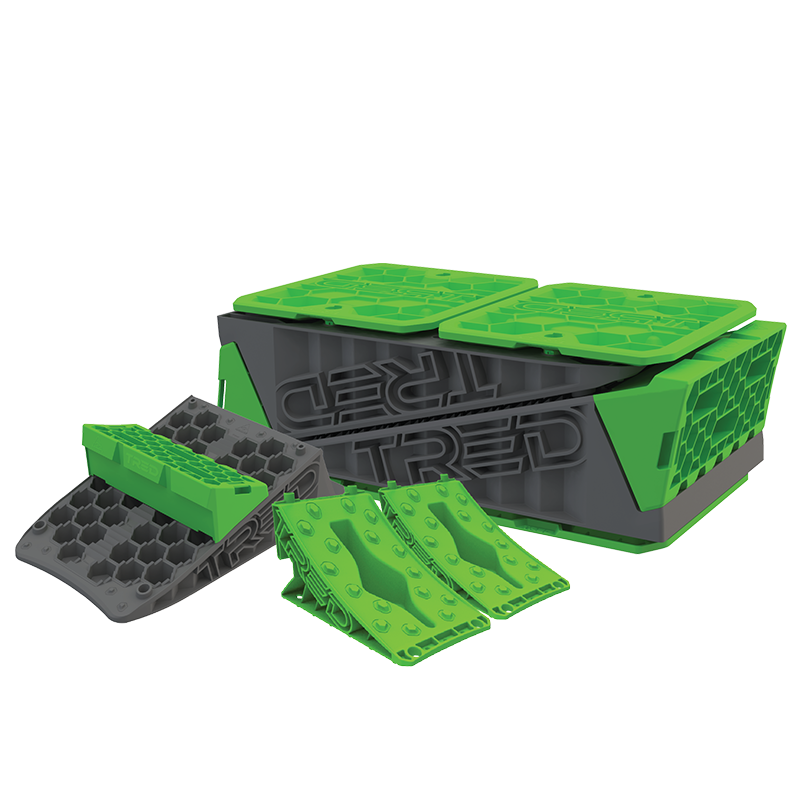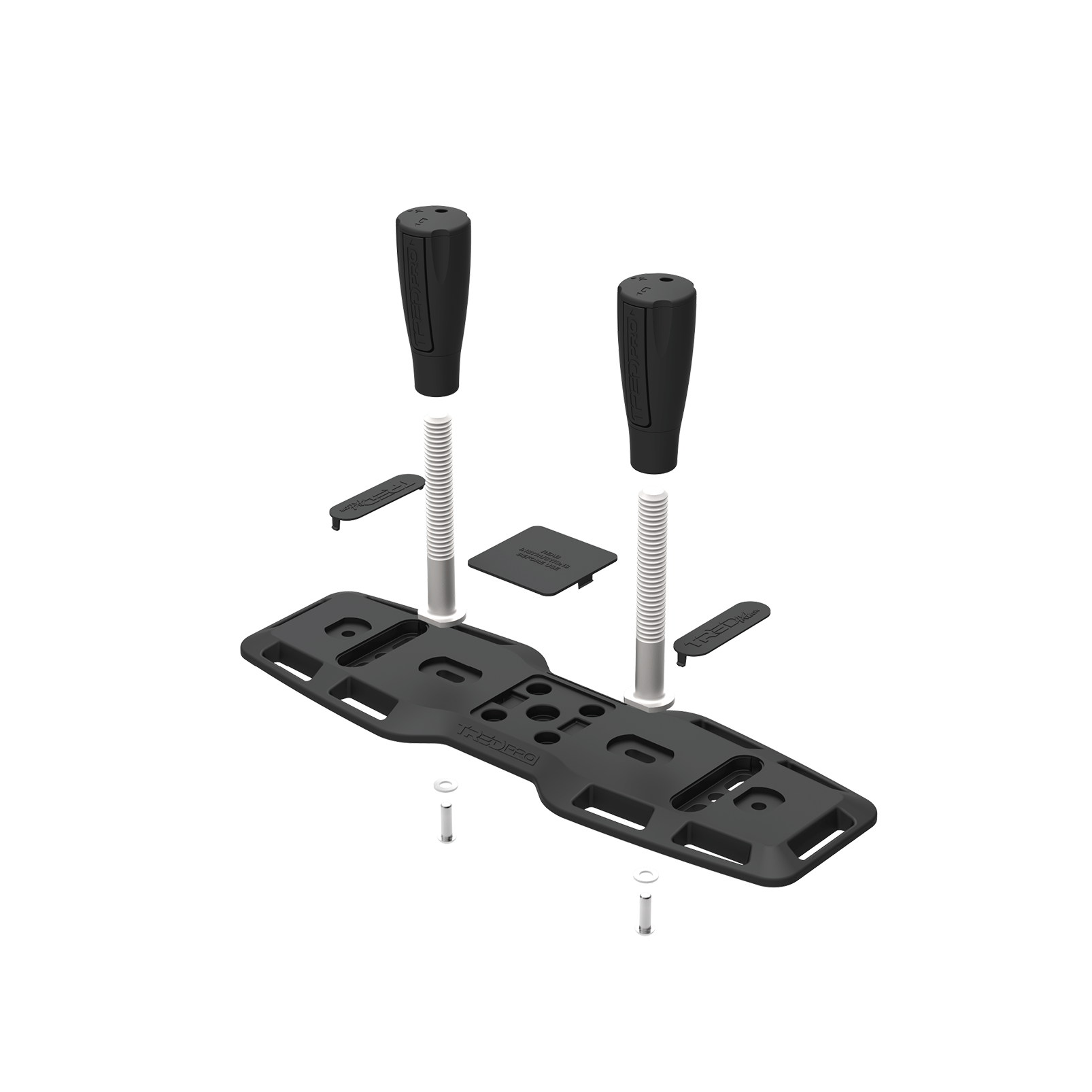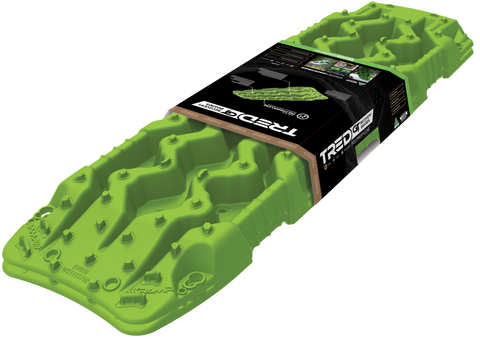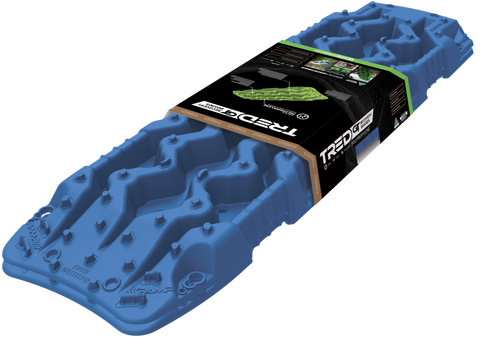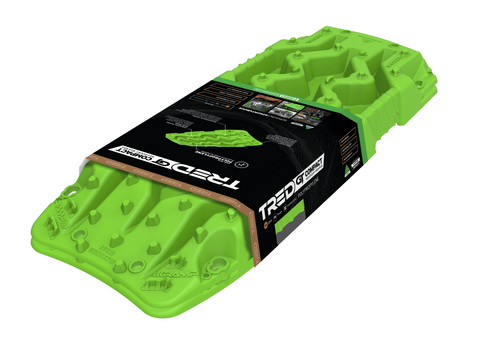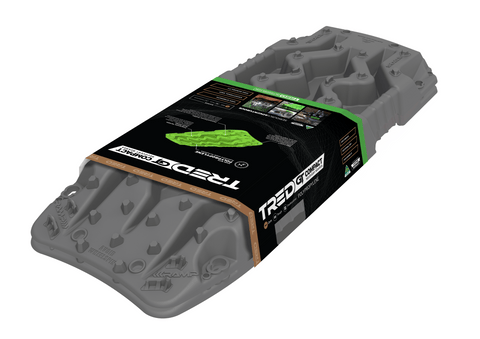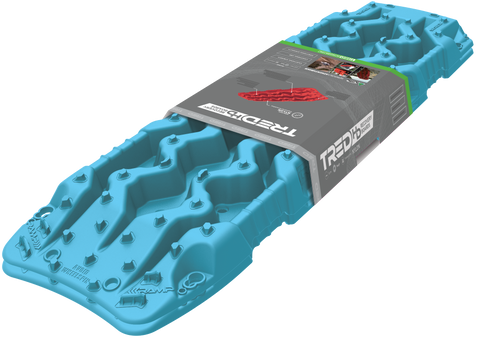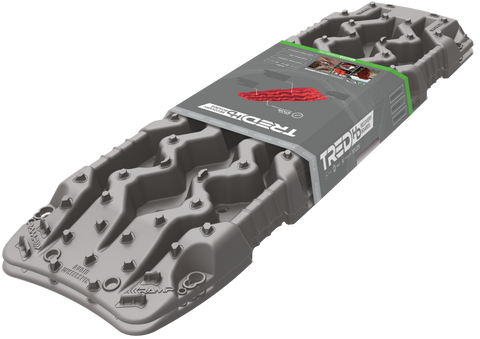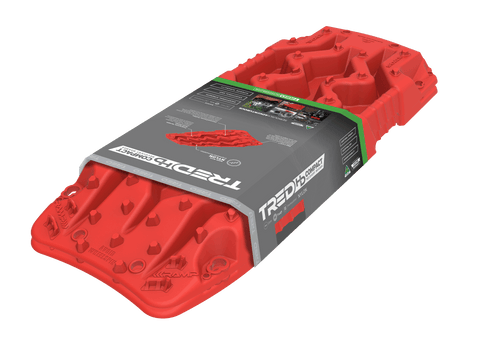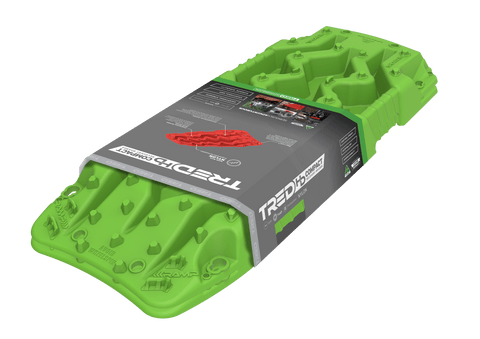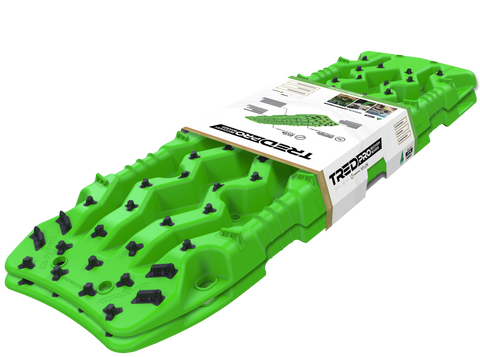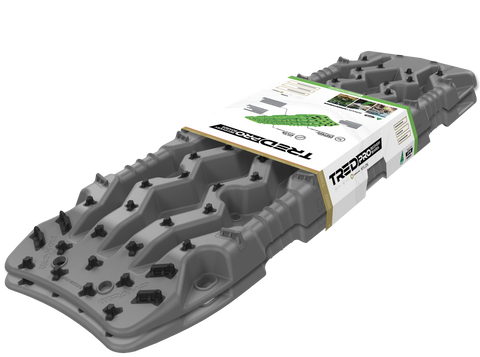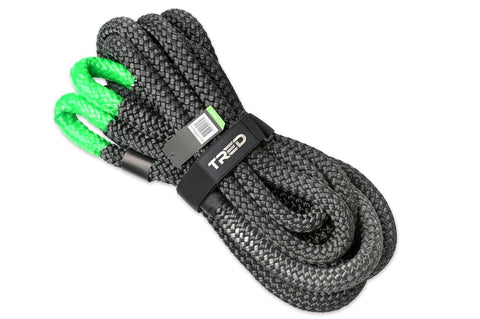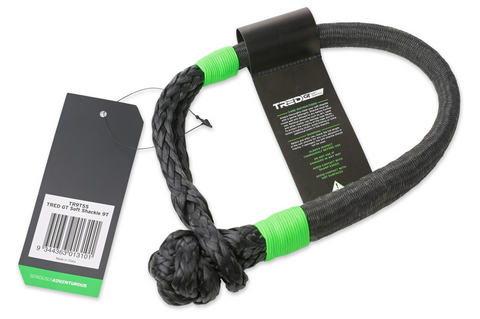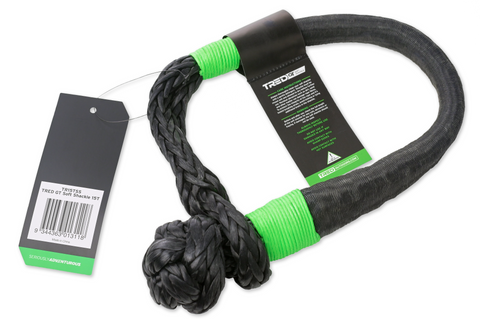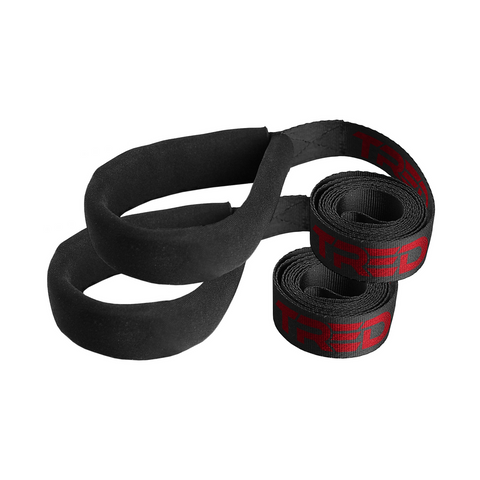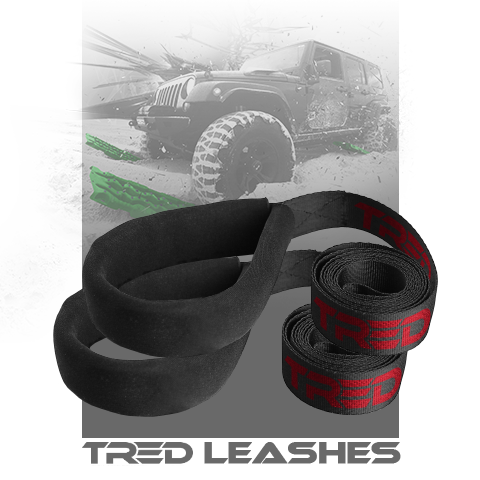How To Recover Your Bogged Car From Sand
Unfortunately, getting your car bogged in sand is one of the realities of exploring the beach, desert or the outback. While it can be inconvenient, there are several ways you can recover your bogged car from sand and get back on the track exploring.
After all our years of adventuring, we’ve picked up a few handy tips for getting yourself out of sand. No matter your skill level, there are some things you should always keep in mind if you bog your car in sand.
Here are some tips for getting yourself out of soft sand, with and without a pair of TRED recovery boards.
Step 1 – figure out how you got bogged
The first step in any recovery situation is to safely stop accelerating and take a moment to figure out why you’re not moving.
Generally, if you’ve bogged your car in sand, it’s because your tires are not getting enough traction. In other words, when you accelerate, your tires are spinning but they’re not gripping on to anything.
Therefore, you’ll need to create traction to recover your car from sand.
Step 2 – creating traction
You will need to create traction between your tires and the sand if you want to recover your car from being bogged. It is possible to do this both with and without a set of recovery boards.
Creating traction without TREDs
There are several ways you can create traction in sand. While the easiest option is using a trusty pair of TRED GT recovery boards, they may not always be available — if, say, you’re exploring in someone else’s vehicle, you forgot to pack them or you don’t own some yet.
Dropping tire pressure

Okay, ideally you would have done this before you start driving on sand, but dropping your tire pressure while you're bogged can sometimes help free your car from sand.
Reducing the pressure in your tires increases the surface area of the tire and, in turn, creates more traction.
Just remember, you will need to put air back in your tires before you begin driving on harder surfaces, like sealed roads or dirt tracks.
Using what’s available nearby
You can use any random hard objects that are nearby your vehicle. This could be anything from rocks, driftwood or smaller sticks.
Dig out the sand from in front of your tires and place these objects under the tire. Ideally, this will create some traction between the sand and your tires.
Short of that, try folding one of your floor mats or even an old towel and placing it in front of your tires. Although we have never seen this successfully working.
It can, however, be difficult finding random objects on a beach or in sand dunes. Depending on where you are, you could just be surrounded by a whole lot of sand.
So, what do you do next? Here are some other techniques you could try.
Digging
By digging the excess sand away from around your tires, you may be able to create enough room for your tires to grip and pull your vehicle out.
This method is pretty self-explanatory.
Ideally, you will have a shovel, spade or something similar in your car ready, as part of your road trip essentials. If you don’t, just use your hands.
Rocking the vehicle
You could also try rocking your car side to side or back and forth to try and create momentum.
By rocking the vehicle, you may be able to accelerate as your car moves slightly forward, ideally pulling your vehicle out of the bog. To do this, however, you will need a few extra pairs of hands and you need to be very careful as the person/s rocking the vehicle.
Obviously, this is not the most efficient recovery method in the world. If it’s not working, don’t keep trying. If you are stranded in a hot, isolated place, physically exerting yourself could potentially be dangerous.
Using a vehicle jack
Using a vehicle jack you can jack up each corner of the bogged vehicle and fill the holes in where you were bogged.
Sometimes it can be hard to access the jacking point so you might need to shovel, and you most likely will need a base to place under the jack to create a stable surface or the jack will sink into the sand.
Remember: NEVER get under or place any part of your body under a raised vehicle if using this method.
Shifting the weight
By redistributing weight over your drive wheels, you may be able to create enough traction to recover your vehicle.
What you’re going to want to do is find some heavy objects (rocks, tools in your car etc.) to put in the back seat or boot (for rear-wheel drive). If done correctly, this method will cantilever the weight by increasing downward force.
In less 'sciencey' terms, shifting the weight to other parts of the vehicle can create the traction you need to recover your vehicle.
Two vehicle snatch recovery

If you are exploring with others, and have a snatch strap, you could attempt a two vehicle snatch recovery.
Snatch strap recoveries, however, can be extremely dangerous without the correct experience or equipment. That’s why we would only recommend this recovery method to experienced drivers.
If, however, you are considering this method, remember:
- Never EVER use the tow ball as an anchor point, as it can easily turn into a miniature cannon ball.
- Recovery vehicle should always have 4x4 traction.
- Never use a conventional chain or rope, as these can easily break.
- All onlookers should be standing a safe distance away, past the maximum length of the rope.
- Remember to arrange the snatch rope in an ‘S’ shape along the ground between the two vehicles, and ensure there are no twists along the strap.
- Always use a damper when attempting a snatch strap recovery. Dampers reduce the potential radius of a snapped strap.
Creating traction with TRED recovery boards

The best and easiest way to recover your car from sand is to keep a trusty pair of TRED recovery boards attached to your vehicle.
Using a pair of TREDs is one of the easiest and most efficient ways of recovering your vehicle from sand.
TREDs are the world’s most advanced recovery board and have been meticulously designed to provide the ultimate traction between your tire and the ground.
To perform a recovery with a pair of TREDs, you simply remove the sand from in front of your tires and wedge the TRED boards underneath them. Remember, all TRED models come with dedicated entry and exit points, so make sure you align it correctly.
Once all your boards are in place, carefully accelerate and pull yourself out.
Our recommendation?
A set or two of TREDs should get you out of most sand recovery situations. They are lightweight, designed to handle intense pressure and give you the greatest traction surface area.
When you purchase a set of TREDs, you can explore with confidence, knowing you have the world’s most advanced recovery board at the ready. Plus, with a lifetime warranty, they’re the only board you’ll ever need.



